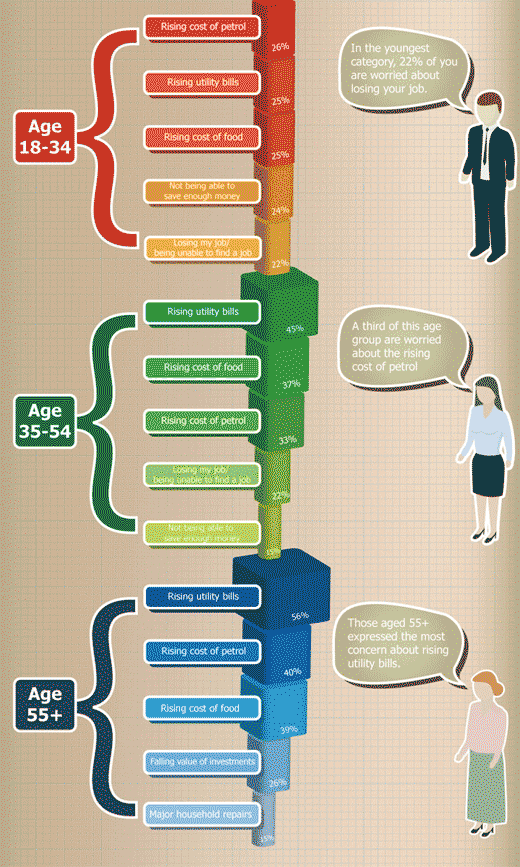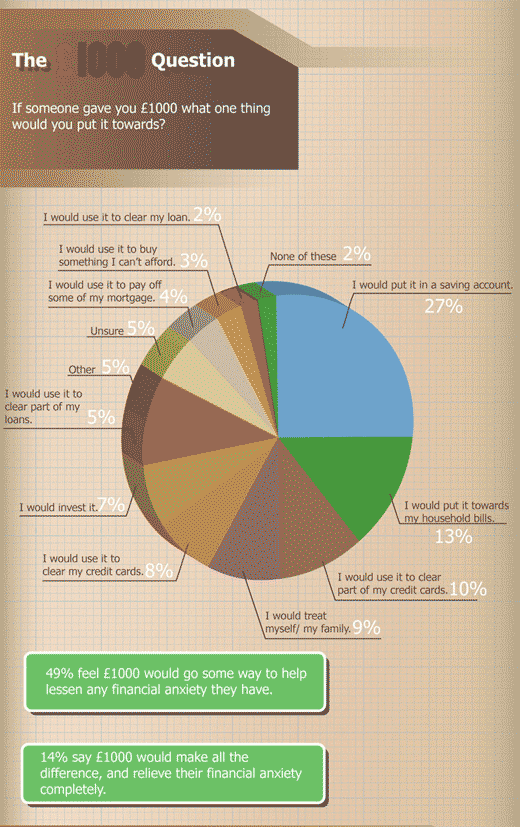Besieged by the rising cost of energy and food, many consumers are barely able to make ends meet. Throw in the fact that for many consumers real wages have been stagnant for decades and you have the makings for the establishment of a permanent financial underclass that is living on the edge of financial disaster.
According to a survey of 2,016 Great Britain consumers done by MoneySupermarket, the financial worries most on the minds of people is the rising cost of fuel and food. Portraying the deep financial distress of the average consumer, only 9% of survey respondents said that they foresaw no financial worries in the next year.
The survey also showed that 8% of people had no one to turn to for help if a financial emergency arose.
The infographic shown below breaks out the financial worries of the survey respondents by age group. It is interesting to note the older respondents had the greatest worries about the cost of fuel, utility bills and food costs, suggesting that the older age groups have less disposable income and/or are worried about having enough money for retirement.
The precarious financial condition of many individuals in the survey is highlighted by the impact that a relatively small amount of money would have on their financial situation. Shown below are the survey results to the question of what respondents would do if they suddenly received 1,000 British pounds, the equivalent of US $1,584. Almost 50% of respondents replied that a 1,000 pound windfall would help to relieve their financial anxiety.
Although the survey does not directly inquire as to what amount of financial assets the respondents had, it appears somewhat obvious from the survey answers that most had very little or no savings on which to fall back on. Nor does the survey report on what is the biggest problem confronting virtually every developed country in the world – the crushing level of debt burdens on consumers and governments.
Central banks have probably prevented a 1930’s style deflationary depression by printing trillions in paper currency to support over-leveraged banks, consumers and governments. Unfortunately, Central Banks cannot manufacture what is most needed in weak economies which is jobs and higher incomes.

